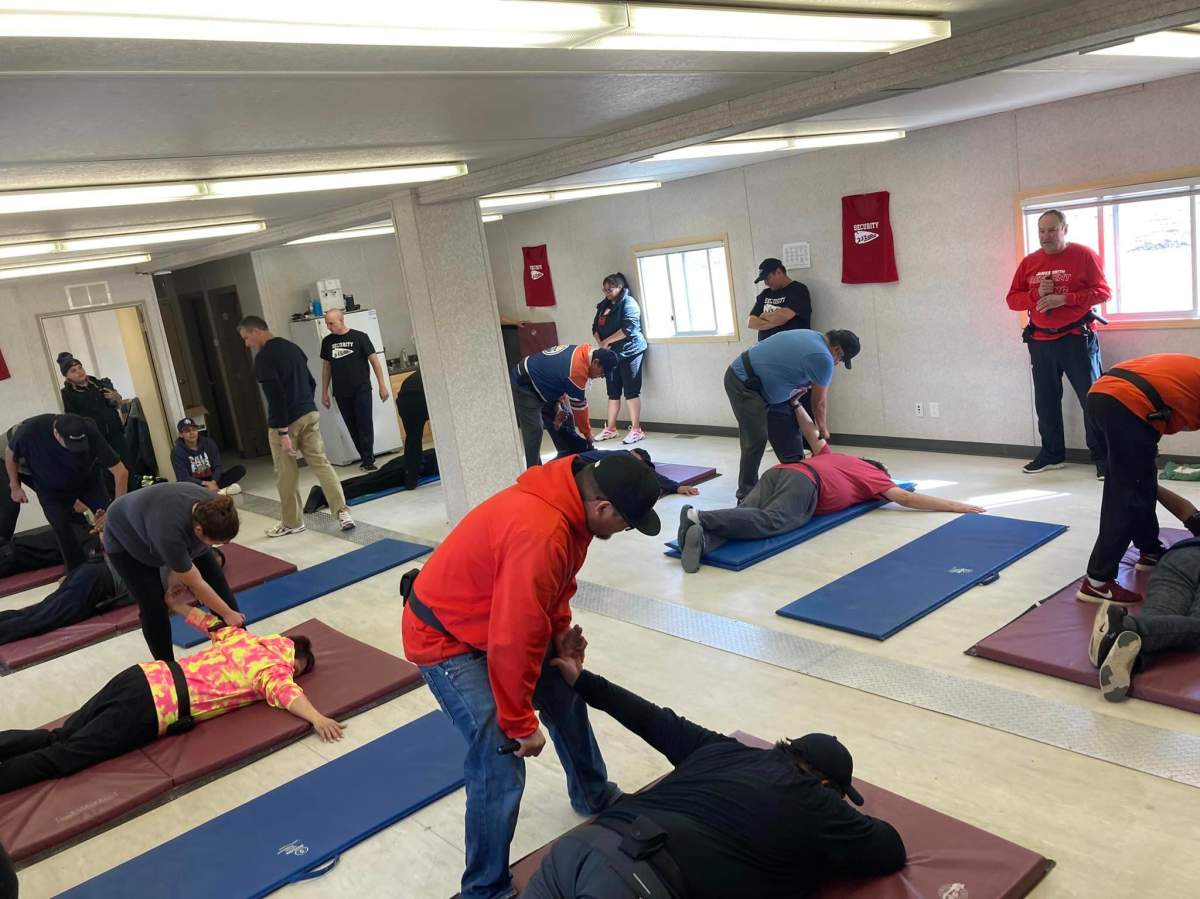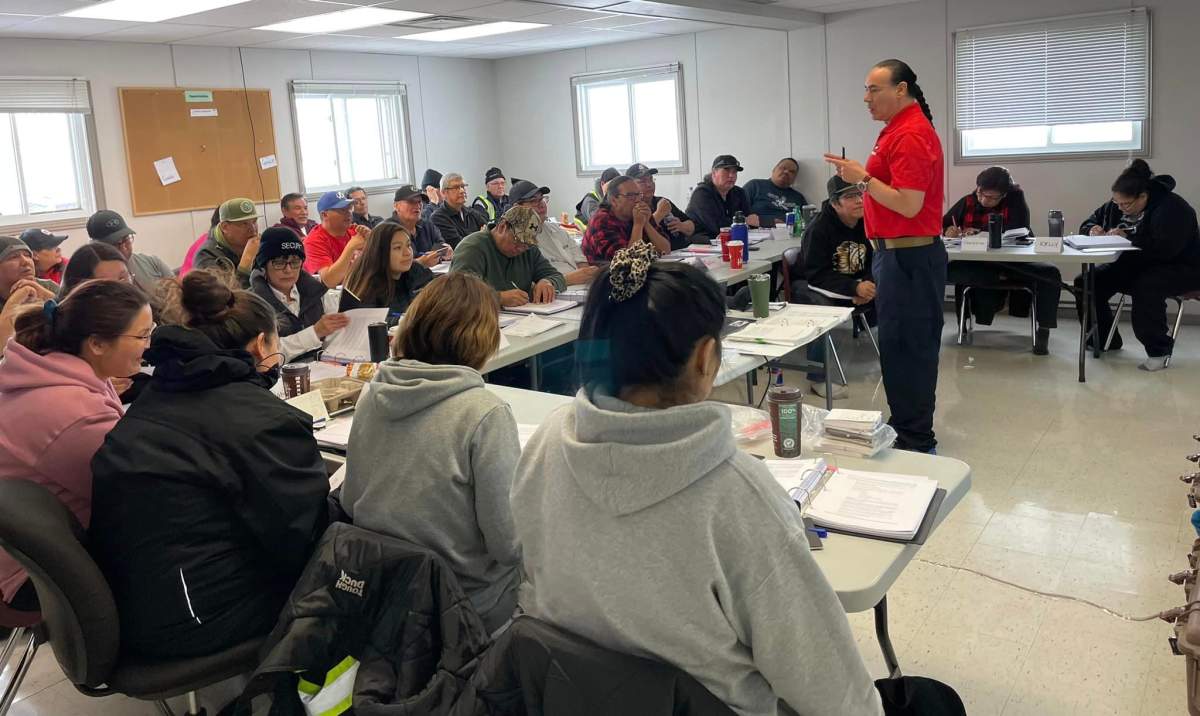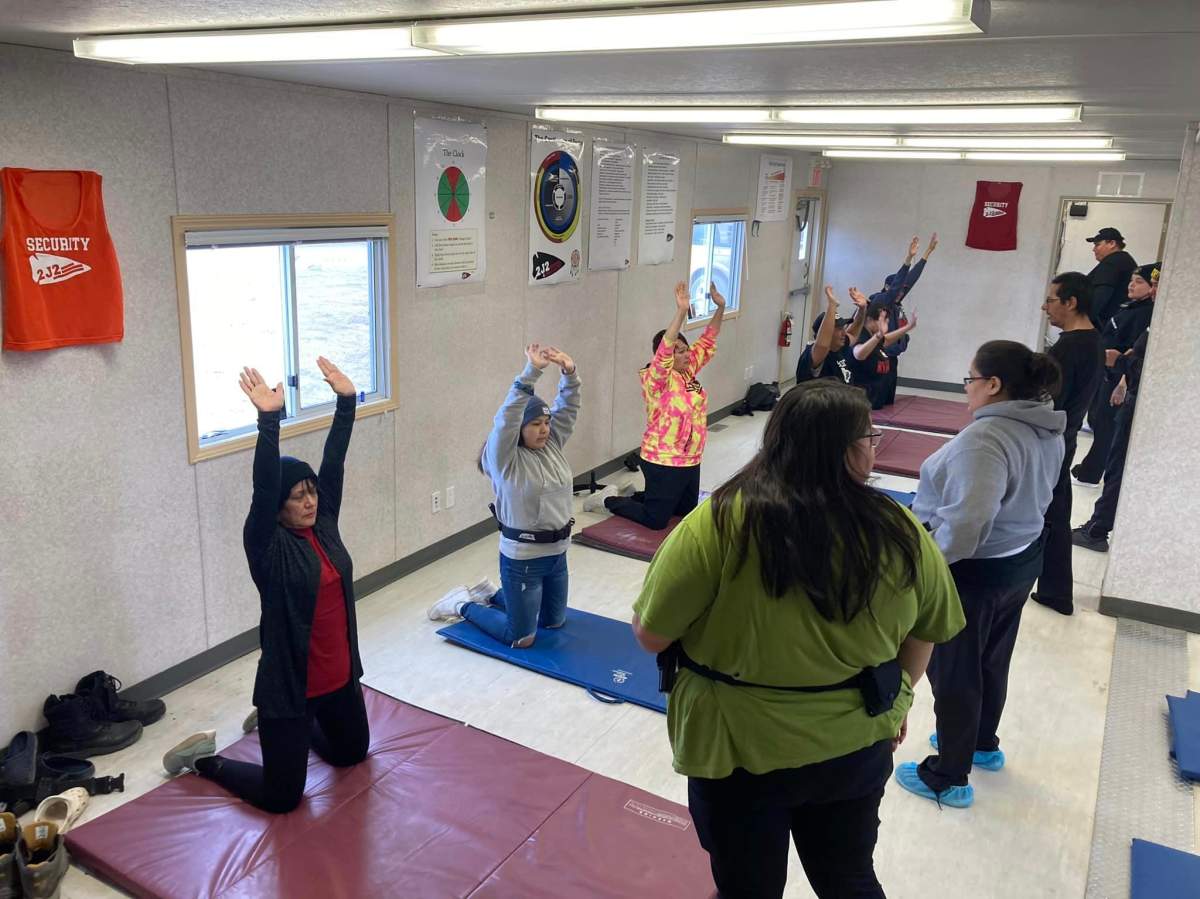A group of 35 band members from the James Smith Cree Nation (JSCN) completed a two-week security training course to boost their skills on how to keep their community safe.

“I learned a lot (since) we’ve been doing the defense tactics and all that,” said JSCN security guard Kyle Sanderson. “Hopefully one day we don’t have to use it, but at least we got that training (and) it all comes down to community safety.”
In December, Sanderson started working as a security guard for his community and even though he received his security license four years ago, he said the training from Security 2J2 was beneficial and refreshing.
“We’re like our own little police force – which we’re not – but we can do most of the stuff after this training,” he said.
A First Nations-owned company from Saskatoon called Security 2J2 was invited by the JSCN community to provide 80 hours of training and programming. Founder Joel Pedersen, a former Saskatoon Police Service (SPS) officer and a Canadian Armed Force member, compounds his and his team’s knowledge and skills to those they train.
“We really are applying our many years of operational experience. One of the instructors and partners here, helped to train the Afghan police force. He spent time in Afghanistan and helped to train people there,” said Pedersen. “We want to try to prepare people so that it becomes intuitive so that they know what they’re looking at (and) that they can do the right thing.”
Security 2J2 taught the participants various tactics and techniques to properly disengage with people, understanding different tools including proper escorting or removing people, proper handcuffing techniques and creating a space for safety.

Get breaking National news
“Everything from disengaging and de-escalating situations … to be able to take proper notes, to be able to articulate a situation or an event that took place,” said Pedersen. “I think is going to be the real beginning of what Indigenous policing will look like.”
The JSCN security team was implemented in December, months after the September tragedy in which 11 people were fatally stabbed and several others were injured.
Pedersen said what occurred in JSCN could have happened in any community and people need to be equipped with the tools and skills.
“Over the last week, we’ve seen that in La Loche, another edged-weapon situation. So, I don’t think this is going away any time soon,” he said. “I think the importance of building the capacity for our First Nations should be paramount for us as a province.”
Aside from the File Hills First Nations Police Service in Treaty 4 territory, there are not many First Nation communities in Saskatchewan that have their own police force, but the JSCN is hoping to have one implemented.
“After much contemplation about the event, I know we need to develop our own police force. I am not stopping until we get boots on the ground,” stated JSCN Chief Wally Burns in a statement.
“We asked for three officers, and I am still waiting for them. The true answer to overcoming these barriers to safety and protection is self-administered policing on our First Nation. I will keep echoing this truth until we have access to proper policing supports in place that fit the needs of our community.”
Until then, the security team of 35 will continue to protect and keep their community safe.
The stabbing tragedy is a stark reminder for Sanderson to protect his family, friends and community.
“It’s unfortunate that we weren’t prepared when it happened with security or any kind of services like that,” he said. “But I don’t think we’d still be prepared for what happened. Not at all.”















Comments
Want to discuss? Please read our Commenting Policy first.